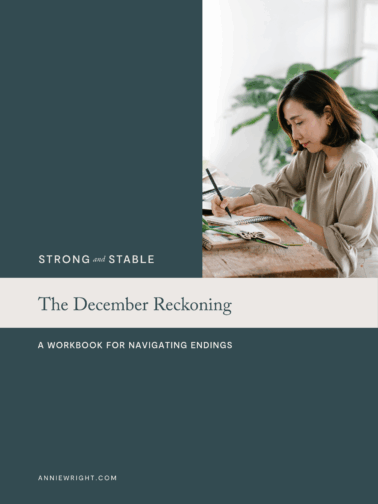TL;DR –Titration—adding small, measurable quantities to achieve desired results—offers a powerful metaphor for trauma recovery through watching a toddler gradually acclimate to water, first standing while holding on, then bending knees deeper, touching chin to surface, eventually submerging to her nose over weeks of patient self-pacing. This natural, self-protective approach to overwhelming experiences is exactly what trauma survivors often weren't allowed to practice, instead receiving messages to "push through," "suck it up," or "stop being silly" when expressing legitimate fear or need for gradual adjustment. The result is adults who blast through discomfort, override their nervous systems, and equate emotional safety with weakness, believing "what doesn't kill you makes you stronger" while ignoring their window of tolerance.
The growth edge for trauma survivors isn't pushing harder—it's learning to move slower, honoring your nervous system's need for manageable doses of stimulation, and becoming the supportive parent who allows you to approach challenges at your own pace. Just as no good parent would force a toddler's head underwater before they're ready, learning to titrate means respecting your emotional safety rather than overriding it, taking new experiences in small experimental doses that keep you regulated rather than flooding yourself with more than you can process.
As you know, I love my hot tub.
I told you about it a few weeks ago and today I wanted to share another lesson this hot tub is illustrating, specifically through my toddler daughter’s relationship with it.
My daughter was only 16 months old when COVID hit (or, at least, when California went into lockdown).
In those first 16 months of her life, we never made it to a mommy-daughter swim lesson at one of the public pools here in the Bay Area.
She had never been in a pool. Had never been in a lake. She had never been in any body of water bigger than our bathtub.
We didn’t go to any pools or big bodies of water during COVID and so, when we got our hot tub in January, it was, by far, the biggest, deepest water experience she had ever had.
The way she approached this new, big experience reminded me of one of the most important lessons adults from adverse beginnings typically have to learn and relearn: the value of titrating your experience.
What does titrating your experience mean?
Titration is a term that I use all the time in my therapy work.
It’s a term borrowed from chemistry and the hard sciences which, effectively, means adding small, measurable quantities of a substance to another substance in precise ways to achieve the desired results.
(Do you remember those pipettes and burettes and small experiments from our high school chemistry days? That was the act of performing a chemical titration.)
The way I interpret this term in the psychotherapeutic context means:
“When we titrate our experience we take action in small, monitored ways to adjust the amount of stimulation we introduce to our nervous system, proceeding in manageable ways to help keep ourselves in a state of emotional safety and equilibrium.”
It’s one of the most important things we can do for ourselves as adults recovering from challenging early childhoods.
What does titrating your experience look like?
So, what does titrating your experience actually look like?
Well, take for instance my daughter’s relationship to her “green hot tub tubby” (what she so endearingly calls it).
It’s the biggest body of water she’s been in since she was born and she was initially very cautious about getting in at all.
But she allowed us to lift her body into the tub the first time we used it and she was comfortable standing up in it as long as she could hold onto one of us while doing so.
But put her face in the water? Absolutely not.
At least not on that first day.
It was too much for her to tolerate and she arched and craned her little body and crawled on top of us to make sure the water didn’t hit her chin and face.
But over the last six weeks, I’ve noticed her “titrating her experience” and experimenting with putting her face in the water.
Curious if you come from a relational trauma background?
Take this 5-minute, 25-question quiz to find out — and learn what to do next if you do.
START THE QUIZFirst, she climbed down off of us to be standing in the water all by herself.
Then the next week, she bent her knees a little bit, allowing more of the water to reach her shoulders and neck.
Another few days later, she experimented with dipping the point of her little chin into the water and then taking it out. Climbing back onto me after she did so to get some extra support.
And then last week, she submerged her little face right up to her nose (there was some coughing and spluttering since she didn’t know to hold her nose but once we figured that out she went down up to the mid-bridge of her nose).
She’s making progress in her own way and in her own time when it comes to putting her face in the water.
She still doesn’t feel comfortable with her whole head going under the water and that’s just fine; she’s taking her time and when and if she feels ready and comfortable to do that, she will.
You see, she titrated her experience by experimenting with the water a little more each time, over a period of time, allowing herself to experience it in small, manageable ways.
In this way, she allowed her nervous system to regulate, she stayed within her emotional window of tolerance and didn’t overwhelm herself with new, potentially scary experiences.
(And, it’s important to say, my husband and I would never ever pressure her to do something she didn’t feel comfortable with, so in this way, we fully supported the self-led titration of her experience.)
So this is how my toddler titrated her experience with submerging her face in the water: in small, manageable doses over a period of time to ensure her emotional and physical safety.
This is such a key and critical lesson for all of us to learn but so often a lesson that folks from adverse early experiences don’t get to learn.
Why is titrating your experience a growth edge for many people?
For many of my clients who come from relational trauma backgrounds, they come from adverse early environments in which they may not have had caregivers who allowed them to practice titrating their experiences to new and potentially overwhelming situations.
Moreover, they may have received explicit or implicit messages that undermined their inherent inclination to take new and big experiences in small, manageable ways.
From the subtle – “Oh you’re fine! Don’t be silly, the water won’t hurt you. Be a big girl and go in!” – to the more shamingly obvious – “You’re too old to bring your lovie to Kindergarten, stop crying! He’ll be at home when you’re done with school.” – to the outright egregious – “I’m going out. You have to stay here and watch your younger siblings all night. Figure it out.”
Many of these folks then arrive into adulthood with a maladaptive relationship with their own emotional safety.
They tend to “blast through”, “push past”, “suck it up”, and believe in that maladaptive agade “what doesn’t kill you makes you stronger” as they move through the world.
So often in my therapy sessions, I’ll share with a client like this that their growth edge (the thing they most need to practice and focus on in our clinical work together) isn’t pushing themselves harder; it’s taking things more slowly, more gently, and being more mindful of how they titrate their experience so they can be a better “good enough” internal parent to themselves.
Many folks from relational trauma backgrounds know how to ignore their emotional safety and windows of tolerance (because of course, when you have caregivers who ignore your emotional safety, what else do you grow up learning?), and so learning (or re-learning) how to titrate your experience (like a self-esteemed, well-supported toddler in her hot tub) is a key and very critical growth lesson.
Learning to Titrate Through Nervous System-Informed Trauma Therapy
When you tell your therapist you feel like a failure for needing to leave the workshop early, describing how you should have been able to “push through” the anxiety like you always do, you’re demonstrating exactly why reparenting yourself sometimes looks like not pushing yourself—learning to titrate experiences rather than blast through them is often the most important growth edge for trauma survivors.
Your trauma-informed therapist recognizes that your inability to titrate isn’t weakness but conditioned survival—when caregivers forced you to handle more than you could manage, when showing fear meant shame or punishment, when “I can’t” wasn’t an option, you learned to override your nervous system’s signals. They understand that asking you to slow down feels more threatening than pushing through because gradual adjustment required safety you never had.
The therapeutic work involves relearning what that toddler in the hot tub knows instinctively—that approaching overwhelming experiences gradually is wisdom, not weakness. Your therapist might practice titration within sessions, introducing difficult topics in small doses, checking your window of tolerance, backing off when you’re flooded. They model what should have happened in childhood: an attuned adult monitoring your capacity and respecting your limits.
Together, you identify areas where you habitually override yourself—staying too long at triggering family events, sharing too much too quickly in relationships, taking on work projects that flood your system. You practice smaller experiments: what would leaving after one hour feel like? What if you shared one feeling instead of your entire story? What if you said “let me think about it” instead of immediately saying yes?
Most importantly, therapy teaches you that titration isn’t giving up but giving yourself what you needed all along—permission to move at the pace that keeps you safe, integrated, and actually able to heal rather than just survive. The toddler who takes weeks to submerge her face ultimately swims; the adult who blasts through never learns they deserved patience.
So how can you better practice titrating your experience?
So how can you better titrate your own experience in your own life?
How can you (and I) borrow inspiration from my daughter’s relationship to her “green hot tub tubby” and practice being more supportive of our sense of emotional safety and nervous system regulation?
Consider these questions:
- Do you relate to “titrating your experience” being a growth edge for you?
- Is your growth edge pushing yourself? Or is it easing up, being more gentle, allowing yourself not to “blast” through?
- What’s one area where you tend to override/blast through/ignore your own experience? What’s one recent experience of this for you?
- What would titrating your experience, in that case, have looked like?
And please leave a message in the comments of this essay if you relate to “titrating your experience” being a growth edge for you.
And if you feel comfortable, please let me and our community of readers know how you plan to “titrate your experience” with a challenging situation in your life moving forward. We get tens of thousands of visitors to this blog monthly so your reflections and wisdom might support someone who needs to hear just what you have to say.
Here’s to healing relational trauma and creating thriving lives on solid foundations.
Warmly,
Annie





